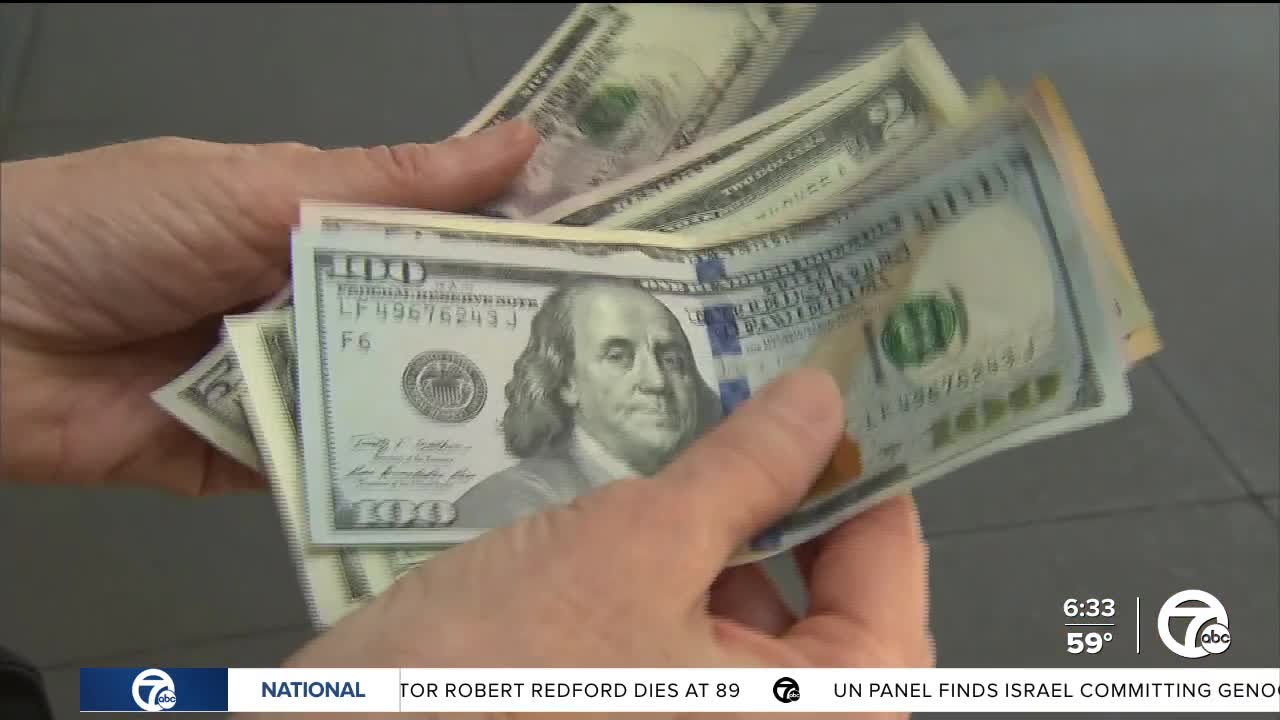ROCHESTER HILLS, Mich. (WXYZ) — Today we'll find out if borrowing money will be a little cheaper. The Federal Reserve is making its decision on interest rates. For the typical American, that could mean paying less on car loans and credit cards, even as your savings accounts take a hit.
It comes at a time of economic uncertainty for most Americans. We just learned that credit scores are falling at the fastest pace since the 2008 recession, as more people fall behind on payments. The national average FICO score dropped by two points this year, the most since 2009. Americans say they are facing issues from all sides, with high student debt and low entry-level hiring.
We spoke with metro Detroiters on how they're dealing with the economic struggles, and a local economist about what a rate drop would mean for your finances.
Watch Brittany's video report below
The Fed is expected to slightly lower interest rates. The Oakland University Professor I talked with said it may make paying credit cards a little easier, but the Fed is walking a fine line with this decision, because lowering rates risks increasing inflation and the price of everyday items.

"So you can see where there’s kind of this conflict that the Fed needs to manage, where on the one hand, lower interest rates mean a better economy," said Michael Greiner, an Associate Professor of Management at OU's School of Business Administration. "I think that there’s a real concern that people are going to start seeing some prices going up very dramatically. In the grocery store and other places if inflation starts to go up again."
Today, the Federal Reserve's Board of Governors is expected to cut interest rates for the first time this year, but it's not a big jump. The cut projected about a quarter percentage point, leaving the target interest rate sitting at the 4-4.25 percent range. The move hopes to stimulate hiring, which saw a slowdown in the most recent jobs report.
The Fed has held the current interest rate for the last nine months to see how the President's sweeping tariffs impact the economy. August's Consumer Price Index showed prices are up: you paid nearly three percent more for goods this last August than you did in August of 2024. It's the same price jump from this July to August.
Right now what we're seeing, Greiner said, is stagflation, and people we've talked with are dealing with the fallouts of high prices and high interest on things like student loans.
"That’s where we get to the situation where we talk about stagflation, where you have an economy that's not doing well and you have inflation, which typically those things cancel each other out," Greiner said.

"Being able to pursue 13 years of advanced education. I came from a working-class family, single mom, and basically funded most of my own education through scholarships or through loans," said Nicole O'Neill, a Physician at Med One Aesthetics. "And certainly some of the loans...can be quite stifling. They can be the size of a reasonable house payment."

"To have a good job, that is helpful," said metro Detroiter Jen Hudgins. "But I feel like I’m trying to save, and if anything els,e I'm losing ground a little bit. High costs of food prices, for example, is something that you see every week."
This is not expected to be a unanimous decision by the Board of Governors. Some are expected to push for a more aggressive cut, in line with the administration, and others are expected to push for another month of holding rates. That's something we'll also be keeping an eye on today.




